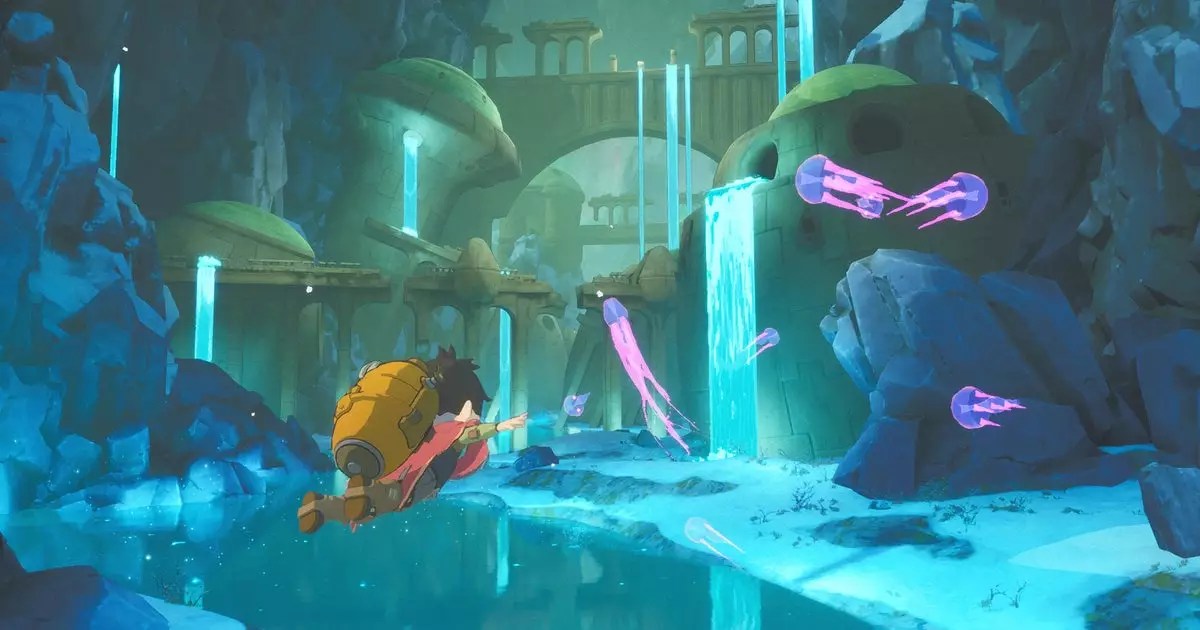Studio Ghibli, renowned for its enchanting storytelling and stunning visuals, has left an indelible mark not only on cinema but also on the gaming landscape. Games that draw inspiration from Ghibli often evoke a whimsical sense of nostalgia—a world where blue skies, vibrant landscapes, and the gentle rustle of grass invoke deep emotional connections. Europa, a newly released puzzle and narrative-driven adventure, invites players into this enchanting realm. Despite the familiarity of its aesthetic, the game’s essence begs a deeper exploration: does it truly capture the magic of its inspiration, or does it merely replicate its visual style?
Promising a limited playtime of 3-4 hours, Europa presents itself as an adventure rich with secrets and puzzles. Players step into the shoes of Zee, an android protagonist endowed with movement abilities that evolve throughout the game. With mechanics like jetpack boosts and the freedom to soar between sky islands, the physicality of motion beckons the adventurous spirit in every player. Critics of similar genre games have raised eyebrows at the fear of superficiality in Ghibli-inspired titles, questioning whether Europa manages to transcend its predecessors or remain a fleeting experience in a sea of imitations.
The game’s development by Helder Pinto, who previously worked as an environment artist for Blizzard on the acclaimed Overwatch series, brings a distinct flair rooted in his creative experience. However, while breathtaking landscapes and Ghibli-esque visuals are tantalizing, the crux of the matter lies in the narrative depth and emotional engagement. Can Europa create a rich storytelling experience that resonates beyond its exceptional visual style?
Games such as Ni no Kuni: Wrath of the White Witch have famously woven Ghibli’s influence into their fabric, complete with animations crafted by the legendary studio and accompanying scores from composer Joe Hisaishi. Yet, there lies a common critique: some titles fall prey to becoming mere “Ready Player Miyazaki,” where aesthetic mimicry overshadows genuine storytelling. As players navigate through fantastical environments, the challenge remains: can they unearth a narrative ecosystem that breathes life into familiar tropes rather than allowing them to languish as hollow representations?
The question at hand is whether Europa can carve out a unique identity amid its influences. With its proposed mechanics and engaging exploration, there’s hope that it will offer a fresh perspective rather than recycling established norms. As players immerse themselves in Zee’s traversal through whimsical landscapes, they anticipate experiencing not just hours of gameplay but a heartwarming journey that encapsulates the spirit of wonder. Even if the demo is no longer available for trial, the appeal of a reasonably priced full release, at £11.51/€13.31/$13.49, beckons the curious.
Ultimately, Europa stands at a crossroads of potential. While the allure of the Ghibli aesthetic is undeniable, the true measure of its success will depend on its ability to tell a story that resonates deeply, enriching players’ experiences in ways that go beyond the surface. Only time will tell if it delivers that magic, but the journey of discovery is certainly worth the chance.


Leave a Reply